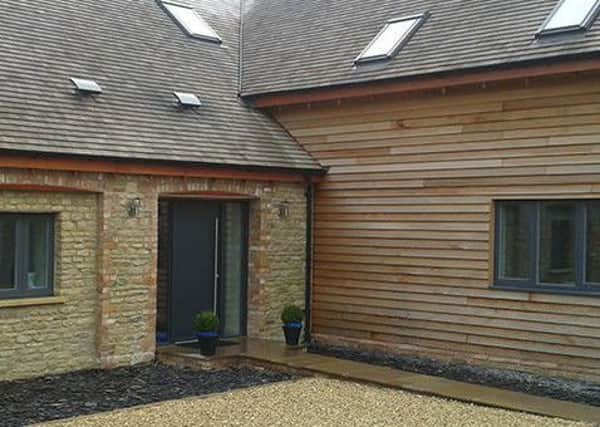Mum's the word after alleged planning breach in Milton Keynes


Property developer Richard Green is a parish councillor for Hanslope, while his mum Jeanette (pictured) is a Tory member of MK Council.
The families live in rural Hanslope, in two barn conversions in the same former farm courtyard.
Advertisement
Advertisement
Controversy blew up this week when the council received a complaint that Richard last year converted a nearby stable block into offices for his company, Deluxe Developments, with change of us planning permission.
The council has confirmed to the Citizen that it has launched an investigation into the matter.
One complainant said: “It’s so unfair that this parish councillor can seemingly do what he wants, when other people who’ve applied to convert their barns have been refused permission.”
Councillor Jeanette Green, who sat on MK Council’s planning committee until last year, was “totally unaware” of the alleged breach, said her husband Bill.
Advertisement
Advertisement
“If our son has made a mistake he must take it on the chin and put it right,” he said.
“Both the barns we live in have full planning permission and Richard’s also has consent for a home office.
“He must have assumed that converting the stables would be covered by that consent.”
Mr Green said he and his wife had no involvement in their son’s property business.
Advertisement
Advertisement
Richard Green himself said: “I really don’t think I have done anything wrong.”
Tory leader Edith Bald, said: “Planning law is very complex.
“Jeanette Green is an honest, upright and highly respected councillor. We must wait for the outcome of this investigation into her son’s business premises.”
MK council refused a change of use planning application for a Hanslope barn in 2014 because it would be contrary to the Local Plan.
Advertisement
Advertisement
Officers said the conversion of a poultry barn in Hartwell Road to a four bedroomed house was “not a form of development appropriate to the open countryside.”
They were worried that it would result ina new swelling with the open countryside that was not “essential to agriculture.”